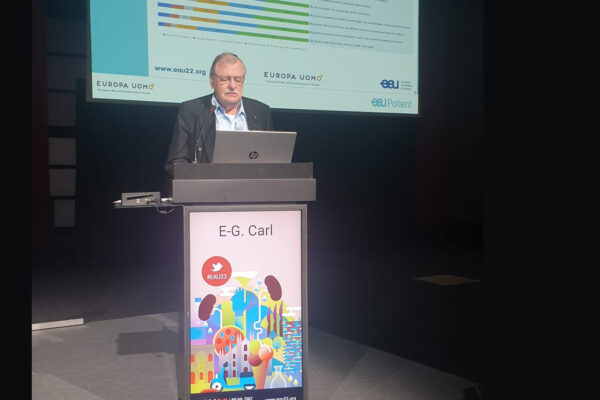Europa Uomo Chairman says prescribing pads is not enough
Clinicians need to better understand the patient perspective if they are to effectively manage prostate cancer, Europa Uomo Chairman Guenther Carl has told workshop participants at the European Association of Urology (EAU) Congress.
He said they need to understand the psychological burden patients can be under: if surgery does not successfully clear the cancer, if treatment affects their continence or sexual function, or if there is a recurrence.
Europa Uomo’s EUPROMS studies, looking at quality of life after treatment for prostate cancer, found that more than half of men said that a recurrence had affected their mental health significantly. More than 60% of men said they lacked at least some urinary control after treatment. They needed better support, said Guenther Carl.
“For men to be confronted with incontinence, and then have to address the situation by using diapers consistently over long periods of time, is demotivating and creates unbelievable psychological burden,” he said.
“We ask urologists to monitor the development of incontinence in a timely manner after first invasive treatment and to follow up – not just by prescribing diapers, but by addressing the issue medically, providing information about artificial sphincters and referring to specialists.”
The EUPROMS studies have made it clear, he said, that the issue of erectile dysfunction also needs special attention. “We recommend that around six months after invasive therapy, around the time of a second PSA test, urologists proactively start conversations about this topic. If the patient is not interested in discussing it, then end of story. But if there is interest, they should reserve time or provide a special consultation to go into all possible details.”
- Professor Monique Roobol, who has played a central role in data analysis and reporting for Europa Uomo's EUPROMS studies, has been made an honorary member of the EAU. Professor Roobol is Professor Decision Making in Urology and the Head of the scientific research office within the Department of Urology at Erasmus Medical Centre Rotterdam, the Netherlands.
